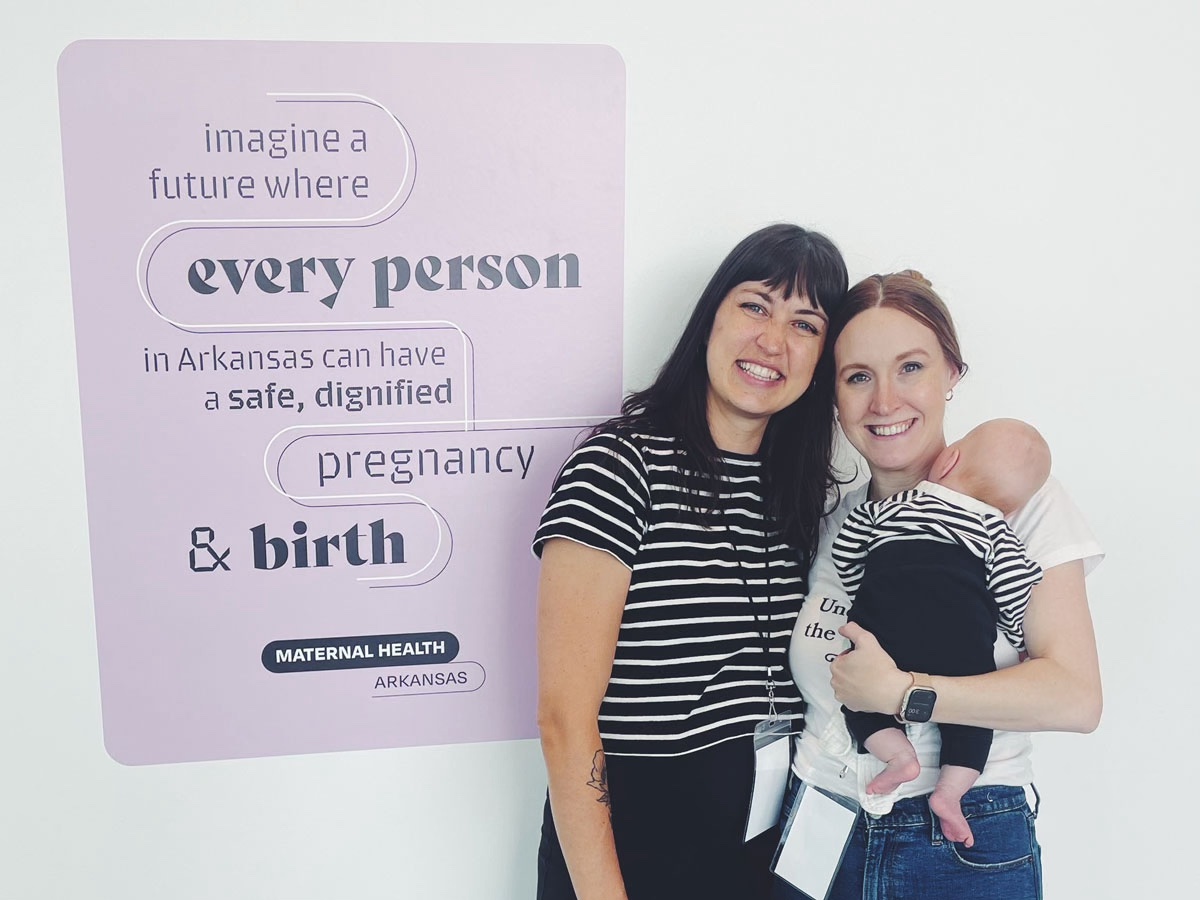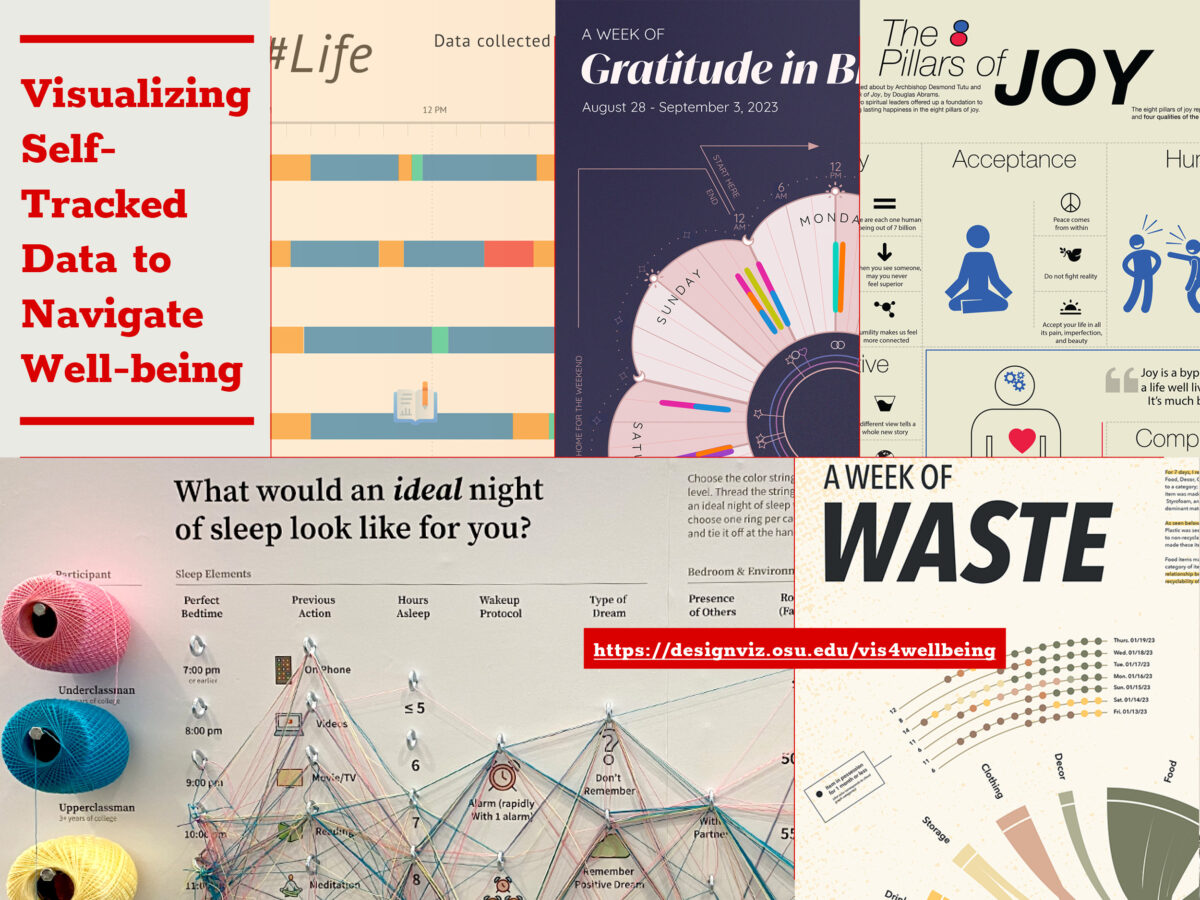Bree McMahon
Assistant Professor
University of Arkansas
Alison Place
Assistant Professor
University of Arkansas
Since 2019, the maternal mortality rate in the United States has increased by more than 15%, according to the CDC. While the number of women who die during or after childbirth has fallen globally in recent decades, it has nearly doubled in the U.S. since 1987. In Arkansas, the maternal death rate is one of the highest in the nation. Arkansas also ranks fourth among states where a majority of women live in a maternal healthcare desert, with 37 counties that do not have a single OB/GYN. Furthermore, Arkansas has the highest teen pregnancy rate in the country and, since the Dobbs decision in June 2022, the fourth strictest anti-abortion laws in the country. The lack of access to providers coupled with laws that lead to forced birth has created a complex crisis of reproductive justice in the state, which disproportionately affects women who are poor, Black, and live in rural areas.
Understanding the crisis of maternal health in the United States is difficult due to a lack of data, as well as a lack of access to data, because there is no national system for tracking maternal health issues, and laws and guidelines vary from state to state. In 2020, funded by a federal legislative proposal, the Arkansas Maternal Mortality Review Committee published findings that cited a distinct lack of data in the state as a key barrier to improving outcomes. In Arkansas, another significant challenge is the disparate and disconnected nature of birth worker communities. The experiences and perspectives of stakeholders vary widely, and there is a lack of collective understanding of the roots of problems or possible solutions.
As designers, we explored how design can help untangle the complexities of birth and motherhood and dismantle the systems that perpetuate oppressive and manipulative practices. We were interested in how disparate stakeholders might provide valuable perspectives on this crisis, which could help to articulate a path forward. When it comes to complex systems, designers have a unique ability to approach issues from a collaborative mindset while also keeping in mind users and desirable (and undesirable) outcomes.
Since 2022, we’ve teamed up with a group of researchers at the University of Arkansas with backgrounds in nursing, business, and design to generate various community-led design approaches to addressing the maternal health crisis. Inspired by the 2014 “Make the Breast Pump Not Suck!” Hackathon at the MIT Media Lab, we hosted the Arkansas Maternal Health Community Hackathon in 2023. Traditionally, hackathons are multi-day events attended by multidisciplinary professionals, such as programmers, designers, and engineers. While typical hackathons are rooted in patriarchal tech culture, feminist researchers and designers have recently co-opted them as participatory spaces for social change. With an emphasis on relationship-building and care, feminist hackathons lay the groundwork for a plurality of community-led solutions to complex problems that are equitable, sustainable, and inclusive.
The Arkansas Maternal Health Community Hackathon was a free one-day event that brought participants from across the state together to identify the root causes of the maternal health crisis and generate actionable visions for change. The two primary goals of the hackathon were to start conversations and build connections, so we designed the event to make people feel comfortable and to accommodate a wide variety of needs. Nearly 100 people registered for the event, and 72 of them attended. Attendees included parents of all genders, birth workers, nurses, doctors, midwives, doulas, public health experts, legal experts, policymakers, journalists, designers, and artists. We were strategic in our promotion of the event, focusing especially on inviting people from rural areas of the state and practitioners with expertise in marginalized populations. Funding was provided to cover travel and lodging for attendees who came from other areas of the state.
Programming was focused on clearly framing the maternal health crisis and providing opportunities for attendees to form deep connections and dialogues. The day’s events included two keynote speakers; an advocacy session on how to talk to legislators about maternal health; a documentary screening by Every Mother Counts, a national organization devoted to maternal health; a networking and storytelling space; a resource room; a pre-/post-natal yoga session; and free childcare. With the support of facilitated activities and an on-site makerspace, some participants formed teams to address specific problems related to maternal and infant health. Volunteer designers worked with practitioners and organizations to strategize ways to approach various problems and discuss possible outcomes. Projects completed as a result of the hackathon included promotional materials for a local midwife, information design about prenatal care options for a local hospital, screen-printed tote bags with home birth kits for a local midwife, and a strategy and prototype for a website for the women’s hospital. We captured the perspectives of attendees by inviting them to participate in a qualitative research study about the barriers to maternal health in the state. We also produced a short documentary about the event (link in PDF).
The impact of the event was evident in the overwhelmingly positive feedback we received. We heard from dozens of participants during and after the event that it was incredibly meaningful for them to come together in a supported space to work toward addressing this enormous problem. Many said they would like the hackathon to be an annual event. We are excited by the relationships formed and the community built through this one event. With the feminist hackathon as a guide, we are continuing to build a model for participatory design with diverse communities to build coalitions in the uphill battle toward reproductive justice in the South.
This project was the 2023 Design Incubation Educators Awards winner recipient in the category of Service.
Bree McMahon is a designer and educator driven by examining complex topics through dialogical prompts that encourage conversation, critical perspective, and collective learning. She is an assistant professor of graphic design at the University of Arkansas School of Art and currently serves as the inaugural director of graduate studies for the Master of Design in Communication Design program. Her research is situated within design pedagogy and the state of the design discipline. After the birth of her first child, she established an additional research trajectory concerned with maternal health, health literacy, and storytelling for improving birth outcomes in the United States. Prior to teaching, she worked with start-ups, small businesses, and non-profits within her various communities across the country. She received her M.G.D. from North Carolina State University College of Design and previous degrees in graphic design and art history from Carthage College in Kenosha, Wisconsin.
Alison Place is a designer, educator, and researcher who works at the intersection of feminism and design to create spaces for critical making and radical speculation. She is the author of Feminist Designer: On the Personal and the Political in Design published by MIT Press in 2023. She is an assistant professor of graphic design at the University of Arkansas School of Art, where she also serves as the director of the graphic design program. She has held several leadership roles in the design community, including two terms on the AIGA Design Educators Community National Steering Committee, and has earned multiple national awards for her scholarship and creative work. Previously, she worked for more than ten years as a creative director and designer for nonprofit and higher education institutions. She earned an M.F.A. in experience design from Miami University of Ohio, as well as degrees in graphic design and journalism from the University of Cincinnati College of Design, Architecture, Art, and Planning.

